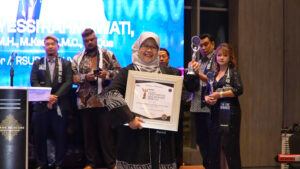In a digital era where everything evolves at the speed of light, an intriguing psychological phenomenon has surfaced: Gen Z is feeling older than their years, while Millennials are holding on to youth with remarkable ease. Though ironic at first glance, this emotional paradox speaks volumes about how each generation navigates identity, maturity, and time.
For Gen Z—those born in the late 1990s through the early 2010s—life feels like a constant sprint. As the youngest players in today’s workforce, they juggle school, side hustles, digital presence, and personal branding all at once. Their childhoods were marked by online classes, fast-changing trends, and a cultural push to appear mature and polished on social media.
This performative adulthood, paired with the relentless pressure to “stay relevant,” has left many in Gen Z feeling prematurely aged—not physically, but emotionally and mentally. The phenomenon is what researchers now call “digital duality”: the strain of living in both a hyper-professional and hyper-youthful digital world. They’re expected to act grown-up in real life while keeping pace with teen internet culture.
Adding to this internal tug-of-war is the rise of Gen Alpha, the digital-native generation born into a world of AI, instant personalization, and fully integrated tech. For Gen Z, no longer being the “youngest” generation serves as a subtle but powerful reminder that their own time is moving fast—perhaps too fast.
Meanwhile, Millennials—now in their 30s and early 40s—seem to be living life in reverse. Postponing traditional milestones like marriage or home ownership, many Millennials are choosing lifestyles that reflect freedom, curiosity, and self-expression. They travel, collect figurines, sip specialty coffee, and stay plugged into TikTok trends not just to stay “young,” but to stay connected to the joy of evolving.
Public figures like Dian Sastrowardoyo or Tatjana Saphira continue to embody this youthful mindset—stylish, culturally in-tune, and gracefully ageless. For Millennials, being young isn’t about denying adulthood; it’s about redefining it on their own terms.
This contrast is often amplified online. Memes comparing 15-year-old Gen Z kids with Millennials at the same age spark laughter and awe: kids today sporting professional makeup, extensions, and skincare regimens that once belonged to a much older demographic. The digital mirror, it seems, reflects not just images—but intergenerational identity shifts.
What we see here isn’t a simple story of age, but a reflection of what it feels like to grow up in different times. For Gen Z, growing up feels like catching a train that never stops. For Millennials, it’s about staying playful in a world that once asked them to grow up too fast.
In the end, age is no longer just a number—it’s a feeling, a perspective, a rhythm we learn to dance to. And in the dance of generations, perhaps the most important lesson is this: we’re all still learning how to grow, no matter where we are on the timeline.











